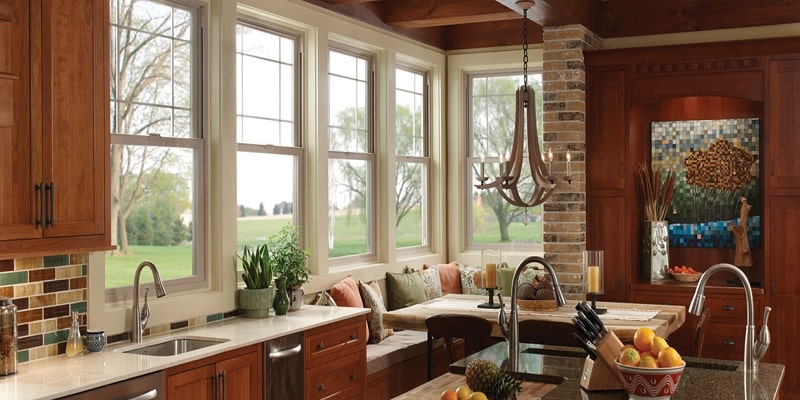An energy-efficient home is not merely about having the latest gadgets or installing solar panels; it also involves practical decisions, such as choosing energy-efficient windows. Upgrading to energy-efficient replacement windows in Tucson, AZ can significantly affect your energy bills, home comfort, and environmental impact. Here’s a guide to help you make the right choice.
Understanding Ratings: Windows are graded on energy efficiency using the U-Value and the Solar Heat Gain Coefficient (SHGC). The U-Value gauges the window’s insulating ability, with lower values suggesting better insulation. SHGC measures the amount of solar radiation the window allows to pass through. Lower SHGC means less heat enters your home, which is advantageous in hot climates. When choosing energy-efficient windows, look for a low U-Value and an appropriate SHGC based on your local environment.
Material Matters: The window frame material is crucial to energy efficiency. Here are some popular options:
1. Vinyl: Vinyl windows are relatively inexpensive and offer good insulation. They are maintenance-free and available in various colors to match your home.
2. Wood: Wood frames are excellent insulators and have a traditional, warm aesthetic. But, they require regular maintenance and may be better for humid climates.
3. Aluminum: Aluminum frames are durable and low-maintenance but have poor insulation properties.
4. Fiberglass: Fiberglass frames are strong, maintenance-free, and offer excellent insulation. However, they can be more expensive than other options.
5. Composite: Composite frames combine the strengths of different materials to enhance durability and insulation.
Glazing Options: Energy-efficient windows typically have double or triple glazing. Between the glass layers is a gas fill (usually argon or krypton) which acts as an insulator. Low-emissivity (Low-E) coatings on the glass can also reduce heat transfer by reflecting heat energy. Low-E double-glazed windows are the most common for residential use due to their cost-effectiveness and performance.
Purpose of the Window: The type and operation of a window can also affect its energy efficiency. Fixed windows are generally more energy-efficient, as they don’t open and thus do not allow air leaks. However, other types, such as casement or awning windows that seal tightly when closed, can also be highly energy-efficient.
Choosing Certified Windows: Look for the ENERGY STAR label when purchasing windows. This means the window has been tested, certified, and verified by the National Fenestration Rating Council (NFRC) and has met the energy efficiency guidelines set by the Environmental Protection Agency (EPA).
Consider Local Climate: Finally, remember to consider your local climate. If you live in colder weather, choose gas-filled double-glazed windows with a low U-Value to reduce heat loss. If you live in a warmer climate, select windows with a low SHGC to prevent heat gain.
 Switching to energy-efficient replacement windows in Tucson, AZ, may require an investment initially, but the savings on your energy bills and increased home comfort make up for that in the long run. With this guide, you’re ready to make an informed choice and select the best energy-efficient windows for your home. To learn more about energy-efficient windows, contact Olander’s Window Replacement.
Switching to energy-efficient replacement windows in Tucson, AZ, may require an investment initially, but the savings on your energy bills and increased home comfort make up for that in the long run. With this guide, you’re ready to make an informed choice and select the best energy-efficient windows for your home. To learn more about energy-efficient windows, contact Olander’s Window Replacement.
